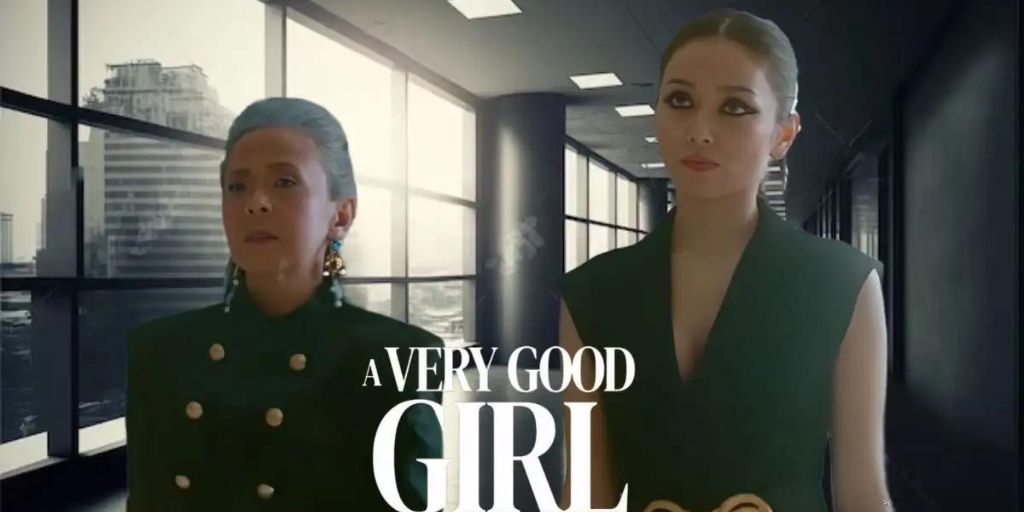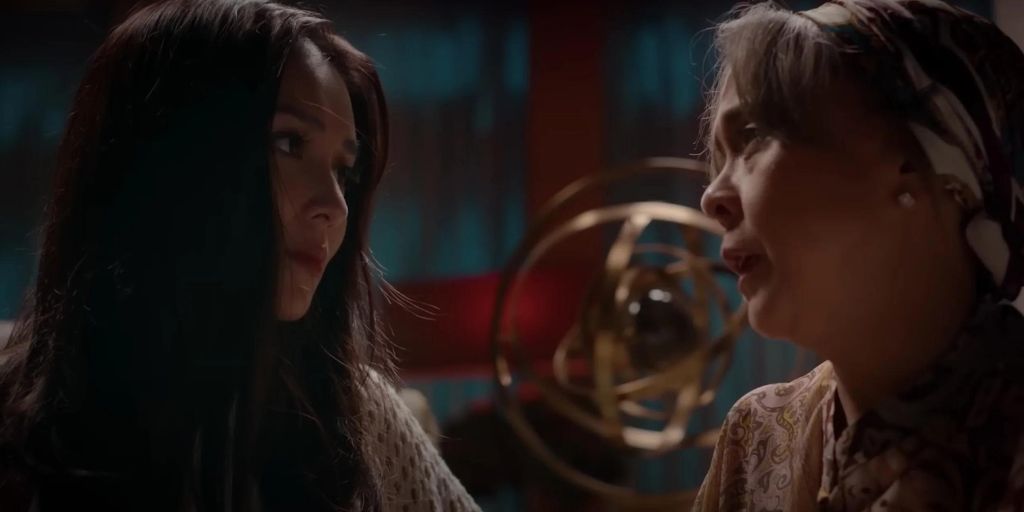The viewer is subjected to a roller coaster ride of expectations in A Very Good Girl, only to have those expectations severely disappointed. Below is a synopsis and conclusion of A Very Good Girl; however, the film’s highlights should not be disregarded out of hand.
The Philippines’ dark comedy “A Very Good Girl” was released in 2023. The film, which was directed by Petersen Vargas, is based on a narrative by Marianne Dominique Mancol. Daniel Santana, Jumbo Albano, and Mancol wrote the screenplay. In addition to well-known performers Kathryn Bernardo and Dolly de Leon in key parts, the film also stars Kaori Oinuma, Jake Ejercito, and Angel Aquino in supporting parts.
On September 27, 2023, the film, which was produced and distributed by Star Cinema, had its national premiere in the Philippines—the plot centers on themes of justice, retaliation, and the intricacies of interpersonal bonds. “A Very Good Girl” offers audiences an engaging and thought-provoking cinematic experience as it addresses societal challenges and personal struggles through a blend of comedy and drama.
Ending Explained
For the remainder of the piece, it would be preferable to refer to Molly as Mother because that moniker is essential to her identity and her function in the movie. Their real name, Philomena Angeles, is Mercy, and Mother fired her for a very minor infraction.
Due to Mercy’s extremely low income, her mother, Conchita, decided to plead with her mother to reinstate Mercy in her position. She believed Mother to be a good-hearted businesswoman who helped the less disadvantaged people in her community, but it proved to be a lie.

Conchita was insulted by her mother, who also threw more money at her. After Conchita was struck by a car, her mother fled the scene rather than assist her daughter. With Conchita’s passing, Mercy’s family disintegrated. Since then, Mercy’s only desire has been to exact revenge on Mother, whose evil character lay veiled and led to the unfortunate circumstances of Mercy’s existence.
She aspires to expose Mother’s true nature to the public and demonstrate that her purportedly “good nature” is merely a publicity stunt used to keep her companies afloat. After spending a day with Mother, Philo leaves a lasting impact by giving her something she has always wanted.
Since her mother passed away some time ago, Philo claims that she is attempting to recreate the sensation of having a mother and will stop at nothing to achieve this goal. In essence, Philo is constructing a character that is devoted to Mother to gain Mother’s trust and admit her into her inner circle.
Through Zab, the public face of Mother’s companies, Philo makes friends and learns about Mother’s involvement in a money laundering scam. After Philo tells Zab that Mother is going to Paris, the two get upset, and Mother gets revenge by having an obscene film of Zab released through Philo.
This marks the beginning of Philo’s retaliation, becoming tainted by dubious deeds because, although what she was compelled to do was extremely shameful, it was required to maintain the character of the insane mother-worshipper that she was becoming.
In Philo’s portrayal, a wealthy girl is seen to be acting purely devotedly rather than as a means of employment. To pay for this false lifestyle, she and her sister had previously deceived a man named Luke. With the previous one acquiring a better career and Philo quitting her job, she gradually assumes the role of Mother’s assistant.
The next person Philo plans to take down is Mother’s close assistant, Charles, who turns out to be far more cunning than Philo anticipated. To stop him, Philo teams up with Joanna, one of the other employees whom he has been pestering sexually.
Before she can take action, he tries to attack her once she finds the informational code on his iPad. Mother watches the entire affair, but she chooses not to intervene since it would “affect the company,” even though Philo manages to escape in time. Philo decides to handle things herself, as per usual. Charles is threatened with being exposed as a sexual offender if she doesn’t divulge Mother’s scam.

Charles consents to come forward as a whistleblower, but he insists that the women are “asking for it” because of his frail ego. We’re happy to report that Philo received a just penalty. But as Charles starts to turn against Mother, her business grinds to a halt, which also has an impact on her relationship with Philo.
Philo’s task is far from complete, as Mother escapes from jail by placing all the blame on Charles. She needs to reintegrate into Mother’s group because she isn’t feeling trusting at the moment. Philo sets up a fictitious self-stab to demonstrate her continued allegiance to Mother.
As anticipated, that causes the two of them to become very close and begin their lives together as mother and daughter. Philo cannot speak out about this because Mother got the person who stabbed him dead. She had to do something else that had an impact on an innocent individual.
Mother and Philo become closer to one another over time, to the point that they eventually share their secrets. Philo tells Mother about the day she unintentionally hurt an unborn child in an attempt to get her to talk. Philo did that because she was upset about her family disintegrating and because she believed her father had cheated on her mother.
Philo acknowledges her regret, and it’s clear from her admission that this is reality and not a deception intended to support her Philo image. Mother acknowledges that she regrets driving away and abandoning Conchita for dead. Philo returns home, convinced that she has all the proof she needs against Mother, thanks to this confession that she covertly recorded.
She intends to give that to the police and relocate with her sister to another city. However, the female they encounter that day claims to be their stepsister. Because Philo thought she had killed the daughter when she was still a fetus, in an emotional flash, Philo welcomes her into the house without even doing her due diligence.
Philo is informed that her evidence is inadmissible when she goes to the police the next day. She receives a call at that very moment from her sister Karen, informing her that she needs money for her daughter’s medical care after the house fire. However, Philo has nothing left for her family at this crucial moment because she has used all of her money to get revenge.
She returns to Mother as a result of requesting the money, and she is met with an unpleasant surprise. After a demeaning performance, Mother admits that Philo’s “step-sister” was a professional actress and that she was aware of Philo’s truth since Charles had called the police.
However, Mother does not desire retribution. As her daughter, she wants Philo to stay with her indefinitely. They argue, and we learn that Mother is still caring for her mother in secret—a mother who everyone assumed had vanished. To coerce Philo into staying with her for the rest of her life, Mother pushes Philo’s hand to kill her.
Mother was struggling with feelings of abandonment as her mother had abandoned her, whereas Philo was just seeking retribution. Because of the superiority complex it gave her, she had been covertly taking care of her, but ever since she had that relationship with Philo, she wanted more.

However, Philo was prepared to leave it all behind. In the epilogue of A Very Good Girl, Mother makes fun of Philo, claiming that they are identical and will stop at nothing to achieve their goals. However, Mother is unwilling to alter her behavior, and Philo aspires to be a better person.
Mother dies after a car strikes her while she is yelling at a strolling Philo. It is a happy ending for Philo since she gets her retribution, albeit more as a result of karma than her deeds, and she also learns that her family comes first rather than the individuals she despises.
A few clips of Philo, aka Mercy, with Conchita are shown in the epilogue. Conchita encourages Philo that being good will let her be anything she wants to be. However, Mercy came to understand as an adult that seeking to be “better” was what brought about the necessary serenity in one’s life. The film might use some improvement, but the message is commendable.





